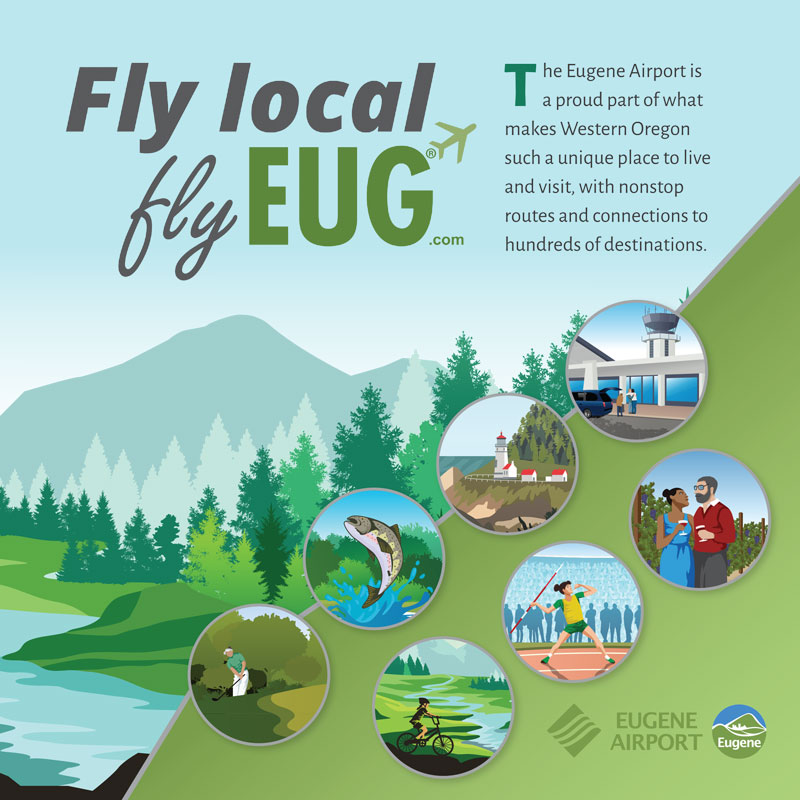
Public Policy
Legislative Priorities
article by Scott Rogers | Director of Business Advocacy
Oregon state lawmakers returned to Salem in January for the 160-day 2021 legislative session. Normally, the halls and meeting rooms would be filled with lobbyists, legislative assistants, the public, and members of the news media.
However, these are not normal times. With Covid-19 restrictions in place to protect the health and welfare of the public—meetings and hearings that in years past would be held face to face are now conducted via online platforms.
This past year was difficult and sometimes devastating for our state due to the wildfires and the Covid-19 pandemic that brought much of our economy to a virtual halt. The current situation makes for a truly challenging session for chambers across Oregon to make our voices heard in the virtual halls of the state capital. However, we are adapting to the new normal.
Each legislative session the Eugene Chamber prepares its legislative agenda through a process conducted by its Local Government Affairs Council (LGAC). This year’s process in accordance with Covid-19 guidelines was conducted virtually. The first step in the process is to appoint a Legislative Subcommittee comprised of LGAC appointees, board members, the President and CEO, and the Director of Business Advocacy. This subcommittee is tasked with determining the issues which are the most important to the Eugene business community.
Input for the legislative agenda is gathered through a variety of channels: research from Chamber staff, expert advice, the Oregon State Chamber of Commerce, Oregon Restaurant and Lodging Association, community stakeholders, and our members. Once the draft Legislative Agenda is approved by the voting members of LGAC, the Business Advocacy arm of the Chamber is permitted to take public positions on legislation and lobby for or against legislation based on the needs of the local business community.
The chamber’s top six policy areas for the 2021 legislative session are Homelessness, Taxes, Transportation, Workplace, Economic Development, and Housing. Here’s a bit about each of these areas of focus.
Homelessness
Homelessness continues to be a major public health issue for our community and the state. While bills currently before the legislature may be well-intentioned, the effect of these bills will inhibit our local governments from taking action to ensure the health and safety of our communities. The Eugene Chamber believes that the bills at the state this legislative session do not adequately address or support the needs of our local community at this time.
Taxes
Initial revenue estimates predicted a budget shortfall for the State of Oregon due to the Covid-19 pandemic. However, the state will receive $2.6 billion as part of the American Rescue Plan passed by Congress. This money coupled with higher than predicted tax receipts leaves the state with plenty of money to cover any shortfalls. The global pandemic has created significant economic losses and uncertainty for our local businesses. The Eugene Chamber opposes raising taxes on our members as they work to recover and rebuild their businesses.
Transportation
The Chamber continues to monitor transportation-related bills at the state level and advocate for bills that improve our local and regional transportation network.
Workplace
The modern workplace has brought about many changes in the relationship between an employer and employee, including the definition of an employee. The Chamber opposes bills that place any undue cost or administrative and regulatory burden on business.
Economic Development
Ever mindful of the need to grow our economy, we support bills that strengthen emerging and innovative technology and industries that have the potential to grow jobs locally. The Chamber continues to oppose bills that raise the costs of construction or add excessive regulatory burdens to development projects here in Eugene.
Housing
Our state continues to face an acute housing shortage and our legislative agenda supports state action that reduces regulatory burdens in the housing sector and the building of new housing units. This year, the Chamber is supporting bills that allow for a partial tax exemption for vertical housing developments, allowing for the division of property to create missing middle housing, and allowing for qualified emergency shelters.
During the 2021 legislative session, more than 4,000 bills were filed and our business community does not have the time or capacity to review these bills. We work diligently to identify and track bills that pertain to our business community.
We are here to serve our members and it is our pleasure to provide periodic updates on bills and hearings throughout the session.









